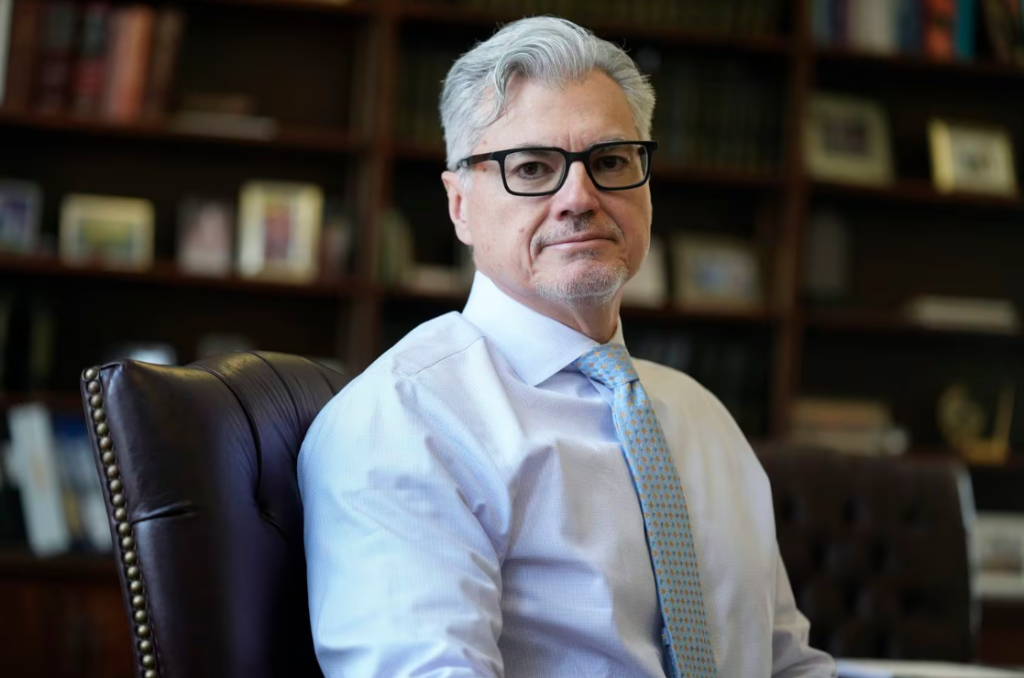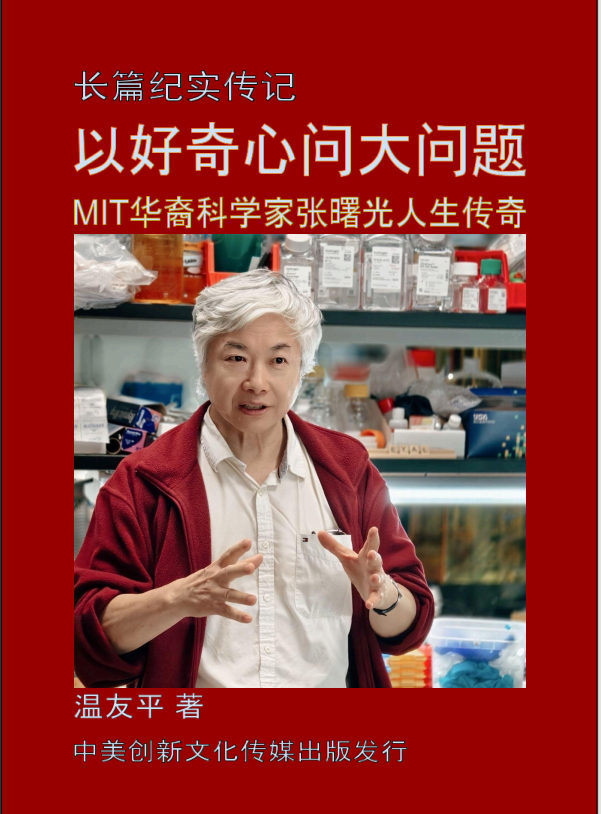【中美创新时报2024 年 6 月 2日编译讯】(记者温友平编译)前总统唐纳德·特朗普周四宣布:“这还远远没有结束。”此前不久,曼哈顿陪审团以 34 项伪造记录掩盖性丑闻的罪名判他有罪。作为共和党的推定候选人,特朗普指望陪审团不会对此案拥有最终决定权。他已经概述了一项计划,将对周五他称之为“骗局”的判决提出上诉。对此,《纽约时报》记者本·普罗特斯、威廉·K·拉什鲍姆和乔纳·E·布罗姆维奇作了下述详细报道。
但即使这位前总统(也可能是未来的总统)能够说服选民忽视他的重罪判决,上诉法院可能不会那么同情他。几位法律专家对他成功的机会表示怀疑,并指出该案可能需要数年时间才能在法庭上审理,几乎可以肯定,当选民于 11 月前往投票站时,他仍将是一名重罪犯。
因此,经过五年的调查和七周的审判,特朗普在纽约的法律之旅才刚刚开始。
这位前总统的支持者呼吁美国最高法院进行干预,尽管这不太可能。专家表示,如果上诉到纽约法院的可能性更大,特朗普将有途径来反驳判决,但比他声称的要少得多。专家指出,法官的裁决有助于塑造案件,他在审判中剥夺了检方一些最不稳定的论点和证据。
上诉将是对法官胡安·M·默尚的一次公投,在特朗普对他和他的家人进行谩骂时,他带领审判穿越了政治和法律雷区。默尚是一位严肃的前检察官,他说他非常清楚“并保护”特朗普的权利,包括他“为自己辩护以免受政治攻击”的权利。
马克·扎德勒是纽约的一位资深诉讼律师,他所在的委员会负责审查特朗普上诉的同一法庭的申请人,他说默尚避免了经常导致定罪的陷阱。
“这个案件没有上诉时通常出现的推翻判决的危险信号,”扎德勒说。“法官的举止无可挑剔。”
即使默尚的裁决没有提供多少素材,特朗普也可能挑战检方案件的基础。特朗普的律师指出,曼哈顿地区检察官阿尔文·布拉格(Alvin L. Bragg)使用了一种新颖的理论,指控特朗普犯有 34 项伪造商业记录的重罪。
在纽约,这种罪行属于轻罪,除非伪造记录是为了掩盖另一项罪行。为了将指控提升为重罪,布拉格辩称,特朗普伪造记录是为了掩盖一项鲜为人知的州法律,即通过“非法手段”密谋赢得选举。
特朗普的阴谋发生在他第一次竞选总统期间。布拉格说,当特朗普安排购买并掩盖有关他性生活的有害故事(包括一名色情演员的幽会故事)时,他试图影响 2016 年的选举。
在上诉中,特朗普的律师预计将辩称,布拉格不恰当地扩大了州选举法(而且是错综复杂的法律)的范围,以涵盖联邦竞选活动。他们可以声称虚假记录法本身并不适用于特朗普的案件。
“我当然不认为有过像这样的伪造商业记录的起诉,”退休法官、刑事诉讼专家、布鲁克林法学院教师巴里·卡明斯 (Barry Kamins) 表示。“就上诉问题而言,这都是未知领域。”
这些批评都不会让布拉格感到惊讶,他是一名职业检察官,已经表明自己对创新法律应用很在行。布拉格的上诉负责人史蒂文·吴 (Steven Wu) 是一位口齿伶俐的诉讼律师,他参加了大部分审判。宣读判决时,他坐在第二排,布拉格的右边。
现在吴的工作是确保特朗普不会逃脱定罪。
默坎将于 7 月 11 日对特朗普宣判,就在他参加共和党全国代表大会并被提名为该党总统候选人的几天前。法官可以判处他长达四年的监禁,或仅判处缓刑。
判决结果将为特朗普开启 30 天的上诉期限。上诉通知只是法律依据。然后,特朗普必须向纽约州上诉法院第一部门提出实际上诉。上诉法院法官小组很可能要到明年才会听取辩论,可能要到 2026 年初才会做出决定。
这不一定是最终决定。特朗普或布拉格的办公室可以要求纽约州最高法院纽约上诉法院审查该决定。
特朗普可能还有最后一个选择:美国最高法院。特朗普已经尝试过将案件移交给联邦法院,但失败了,如果他当选,他可以再次尝试。
这将是一个长远的目标。从程序上讲,州被告如果不用尽州上诉,就很难进入最高法院。
“这是一个普通的州法院定罪,”Zauderer 说。“我认为没有一条可行的途径进入最高法院。”
然而,法院在特朗普的另一起刑事案件中似乎对他表示同情。周五,共和党众议院议长迈克·约翰逊在福克斯新闻上露面时辩称,法官应该为特朗普的事业辩护。
“我认为法院的法官——我个人认识他们中的许多人——我认为他们非常关心,”特朗普的盟友约翰逊说。“我认为他们会纠正这个问题,但这需要一段时间。”
周五,特朗普在特朗普大厦的新闻发布会上概述了他的上诉蓝图,表达了对梅尔坎的一系列不满,他称梅尔坎是“暴君”。
“他不允许我们有证人,不允许我们说话,也不允许我们做任何事情,”特朗普声称,并补充说证人“真的被这个看起来像天使但实际上是魔鬼的人钉在了十字架上。”
这些指控是错误的。默尚并没有禁止特朗普传唤证人,但他确实限制了一位辩护专家的证词,这位专家原本要就选举法作证,但最终从未出庭作证。(默尚认定,这位专家关于选举法的证词会侵犯法官自己的责任。)
特朗普还声称,默尚实际上阻止了他为自己作证。他说,法官会允许检察官询问他过去的法律纠纷和“我曾经参与过的一切”。
这太夸张了。
被告通常会根据法官决定检察官可以对他们进行多少盘问来提出上诉。他们还经常辩称,法官允许的证据超出了指控的范围。但默尚拒绝让检方提供各种对特朗普不利的证据,包括对他性侵女性的指控。
这两个问题都是上诉法院最近决定推翻前好莱坞制片人哈维·韦恩斯坦性犯罪定罪的核心。然而,处理韦恩斯坦上诉的律师之一卡明斯表示,他们不会为特朗普赢得胜利。
默坎在审判的每一天都以对特朗普说“早上好”开始,偶尔也会责骂他在法庭上行为不端或违反禁止攻击证人和陪审员的禁言令。但他是在陪审员不在场的情况下这样做的。
当色情演员斯托米·丹尼尔斯站在证人席上时,特朗普嘟囔着说“胡说八道”,法官等陪审团离开后才传唤辩护律师到法庭。“我在法庭上跟你们说话是因为我不想让他难堪,”法官告诉特朗普的律师托德·布兰奇。
默坎还遏制了检方降低定罪特朗普的法律门槛的努力。在向陪审团说明如何将法律应用于特朗普的案件时,法官拒绝采纳检察官的建议,因为这些建议几乎肯定会使定罪成为定罪。
不过,没有法官是完美的。在审判期间,梅尔坎有时似乎会发脾气,严厉斥责辩方的论点,认为这些论点是无意义或重复的。
预计特朗普的律师将质疑梅尔坎将审判留在曼哈顿的决定,因为前总统在那里非常不受欢迎,并支持布拉格的案件理论。
法律要求布拉格证明特朗普在“企业”的记录中造成了虚假记录。特朗普的律师可能会辩称没有这样的企业参与其中。他们认为,这些文件属于特朗普个人,而不是他的公司。
第二项罪行——选举法阴谋——为特朗普的律师提供了另一条可能的途径。起诉所依据的法律理论不仅包括未经检验的法律,还包括复杂的法规组合,就像俄罗斯套娃一样,一个法规套在另一个法规里面。
这一理论要求 Merchan 向陪审团提供错综复杂的法律指示。
“陪审团的指示越复杂,就越有可能承担上诉问题,”纽约上诉律师纳撒尼尔·马默 (Nathaniel Z. Marmur) 说。“而这些是人们能想象到的最复杂的指示。”
早在上诉决定之前,特朗普的政治命运就已注定。在陪审团判他有罪的一天之内,竞选捐款就涌入了他的金库,特朗普将选举日视为“真正的判决”。
他的对手乔·拜登总统表示,单凭定罪并不能阻止特朗普当选总统。
“只有一种方法可以阻止唐纳德·特朗普入主白宫:投票箱,”他说。
本文最初发表于《纽约时报》。
题图:上诉将是对法官胡安·M·默尚的一次公投,他带领审判穿越了政治和法律雷区。默尚是一位严肃的前检察官,他说他非常清楚“并保护”特朗普的权利。SETH WENIG/美联社
附原英文报道:
Trump has few ways to overturn his conviction as a New York felon
By Ben Protess, William K. Rashbaum and Jonah E. Bromwich New York Times,Updated June 1, 2024
NEW YORK — “This is long from over,” Donald Trump, the former president, declared Thursday, moments after a Manhattan jury convicted him on 34 counts of falsifying records to cover up a sex scandal.
Trump, the presumptive Republican nominee, is banking on the jury not having the final word on the case. He has already outlined a plan to appeal a verdict that Friday he labeled “a scam.”
But even if the former — and possibly future — president could persuade voters to ignore his felony conviction, the appellate courts might not be so sympathetic. Several legal experts cast doubt on his chances of success and noted that the case could take years to snake through the courts, all but ensuring he will still be a felon when voters head to the polls in November.
And so, after a five-year investigation and a seven-week trial, Trump’s New York legal odyssey is only beginning.
The former president’s supporters are calling on the US Supreme Court to intervene, though that is highly unlikely. In a more likely appeal to a New York court, Trump would have avenues to attack the conviction, the experts said, but far fewer than he has claimed. The experts noted that the judge, whose rulings helped shape the case, stripped some of the prosecution’s most precarious arguments and evidence from the trial.
The appeal will be a referendum on the judge, Juan M. Merchan, who steered the trial through political and legal minefields as Trump hurled invective at him and his family. Merchan, a no-nonsense former prosecutor, said that he was keenly aware “and protective of” Trump’s rights, including his right to “defend himself against political attacks.”
Mark Zauderer, a veteran New York litigator who sits on a committee that screens applicants for the same court that will hear Trump’s appeal, said that Merchan avoided pitfalls that often doom convictions.
“This case has none of the usual red flags for reversal on appeal,” Zauderer said. “The judge’s demeanor was flawless.”
Even if Merchan’s rulings provide little fodder, Trump could challenge the foundation of the prosecution’s case. Trump’s lawyers note that Alvin L. Bragg, the Manhattan district attorney, used a novel theory to charge Trump with 34 felony counts of falsifying business records.
In New York, that crime is a misdemeanor, unless the records were faked to conceal another crime. To elevate the charges to felonies, Bragg argued that Trump had falsified the records to cover up violations of a little-known state law against conspiring to win an election by “unlawful means.”
Trump’s conspiracy occurred during his first run for the White House. When Trump arranged to buy and bury damaging stories about his sex life, including a porn actor’s story of a tryst, he was trying to influence the 2016 election, Bragg said.
In an appeal, Trump’s lawyers are expected to argue that Bragg inappropriately stretched the state election law — a convoluted one, at that — to cover a federal campaign. And they could claim that the false records law itself does not apply to Trump’s case.
“I certainly don’t think there has been a prosecution of falsifying business records like this one,” said Barry Kamins, a retired judge and expert on criminal procedure who teaches at Brooklyn Law School. “This is all uncharted territory, as far as an appellate issue.”
None of this criticism will surprise Bragg, a career prosecutor who has shown himself to be comfortable with innovative applications of law. Bragg’s head of appeals, Steven Wu, a fast-talking litigator, attended much of the trial. When the verdict was read, he was sitting in the second row, to Bragg’s right.
It is now Wu’s job to ensure that Trump does not escape his conviction.
Merchan will sentence Trump on July 11, just days before he attends the Republican National Convention to be anointed as the party’s presidential nominee. The judge could sentence him to as long as to four years in prison, or impose only probation.
The sentencing will start a 30-day clock for Trump to file a notice of appeal. That notice is just a legal stake in the ground. Trump will then have to mount the actual appeal at the New York State’s Appellate Division, First Department. The panel of appellate court judges most likely would not hear arguments until next year and might not issue a decision until early 2026.
And that won’t necessarily be the final say. Trump or Bragg’s office could ask the New York Court of Appeals, the state’s highest court, to review the decision.
Trump might also have a final option: the US Supreme Court. Trump, who already tried and failed to move the case to federal court, could try again if he were elected.
It would be a long shot. Procedurally, it is exceedingly difficult for a state defendant to reach the Supreme Court without exhausting state appeals.
“This is a garden-variety state court conviction,” Zauderer said. “I don’t see a plausible path to the Supreme Court.”
Yet the court has appeared sympathetic to Trump in one of his other criminal cases. And in an appearance on Fox News on Friday, the Republican speaker of the House, Mike Johnson, argued that the justices should take up Trump’s cause.
“I think that the justices on the court — I know many of them personally — I think they’re deeply concerned,” said Johnson, a Trump ally. “I think they’ll set this straight, but it’s going to take a while.”
At his news conference at Trump Tower on Friday, Trump outlined a blueprint for his appeal, airing a litany of grievances about Merchan, whom he called “a tyrant.”
“He wouldn’t allow us to have witnesses or have us talk or allow us to do anything,” Trump claimed, adding that witnesses were “literally crucified by this man who looks like an angel, but he’s really a devil.”
Those accusations were false. Merchan did not prohibit Trump from calling witnesses, though he did limit the testimony of a defense expert who was set to testify about election law but ultimately never took the stand. (Merchan determined that the expert’s testimony about the law would intrude on the judge’s own responsibility.)
Trump also claimed that Merchan effectively prevented him from testifying in his own defense. The judge, he said, would have allowed prosecutors to question him about his past legal troubles and “everything that I was ever involved in.”
That was a significant exaggeration.
Defendants routinely premise appeals on a judge’s decision about how much prosecutors may cross-examine them. They also often argue that judges have allowed evidence beyond the scope of the charges. But Merchan refused to let the prosecution enter a variety of damaging evidence about Trump, including accusations that he sexually assaulted women.
Both of those issues were at the heart of the Court of Appeals’s recent decision to overturn the sex crimes conviction of Harvey Weinstein, the former Hollywood producer. Yet Kamins, who was one of the lawyers who handled Weinstein’s appeal, said they would not carry the day for Trump.
Merchan, who began every trial day with a “good morning” for Trump, did occasionally scold him for misbehaving in the courtroom or violating a gag order that banned attacks on witnesses and jurors. But he did so outside the presence of the jurors.
When the porn actor, Stormy Daniels, was on the stand, and Trump muttered, “Bullshit,” the judge waited for the jury to leave before summoning a defense lawyer to the bench. “I am speaking to you here at the bench because I don’t want to embarrass him,” the judge told Trump’s lawyer, Todd Blanche.
Merchan also reined in the prosecution’s efforts to lower the legal bar for convicting Trump. In his instructions to the jury about how to apply the law to Trump’s case, the judge refused to include suggestions from prosecutors that would have made a conviction all but certain.
Still, no judge is perfect. At times during the trial, Merchan appeared to lose his temper, castigating the defense for arguments he saw as frivolous or repetitive.
And Trump’s lawyers are expected to challenge Merchan’s decisions to keep the trial in Manhattan, where the former president is deeply unpopular, and to bless Bragg’s theory of the case.
The law required Bragg to show that Trump caused a false entry in the records of “an enterprise.” Trump’s lawyers might argue that no such enterprise was involved. The documents, they believe, belonged to Trump personally, not his company.
The second crime — the election law conspiracy — provides another possible avenue for Trump’s lawyers. The legal theory underpinning the prosecution included not only untested law but also a complex combination of statutes, one tucked inside another like Russian nesting dolls.
This theory required Merchan to provide the jury with byzantine legal instructions.
“The more complex the jury instructions, the more likely they are to bear appellate issues,” said Nathaniel Z. Marmur, a New York appellate lawyer. “And these are some of the most complex instructions one could imagine.”
Long before the appeal is decided, Trump’s political fate will have been set. In the single day since the jury convicted him, campaign donations have poured into his coffers, and Trump cast Election Day as the “real verdict.”
His opponent, President Joe Biden, said that the conviction alone will not thwart a Trump presidency.
“There’s only one way to keep Donald Trump out of the Oval Office: at the ballot box,” he said.
This article originally appeared in The New York Times.

